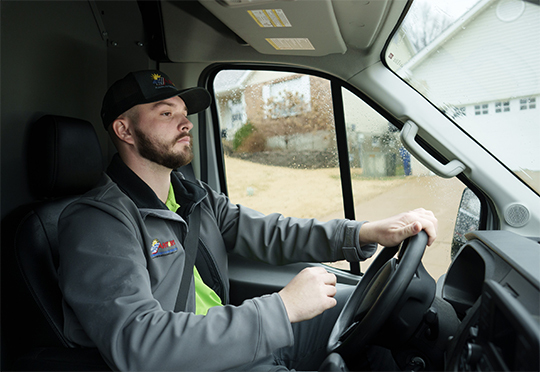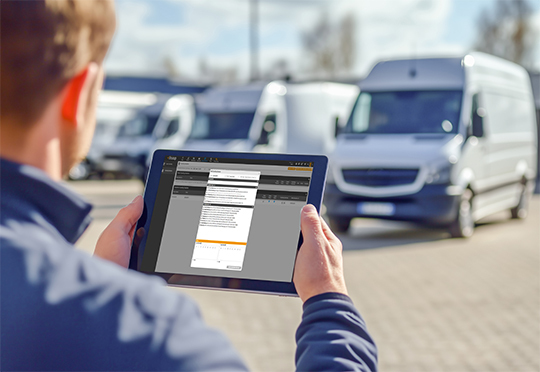
What Are Nuclear Verdicts, and Why Are They on the Rise?
In theory, punitive damages issued to trucking companies at fault for catastrophic accidents make a lot of sense. The consequences of neglecting safety protocols while hauling several tons of cargo in an 18-wheeler can be fatal — it follows that the repercussions for those responsible should likewise be drastic.
The problem is, nuclear verdicts (jury rulings awarding tens or even hundreds of millions to affected parties) are growing more common — and for reasons unrelated to safety, accountability, or fair compensation.
Instead, today’s trucking companies are a ripe target for enterprising investors looking to score a piece of a massive settlement. By abusing the legal systems currently in place, litigating these tragic cases has (to some) blossomed into an extremely profitable, yet disappointing, venture.
Why are we hearing more about nuclear verdicts?
High-profile crashes are attractive targets for litigators. The industry already faces regular scrutiny for poor hiring practices, inadequate driver training, and Hours of Service (HOS) violations — factors that often escalate the awarded damages, even if local law enforcement finds zero evidence of negligent behavior.
Add in the genuine tragedy of any crash — particularly one resulting in injury or death — and it can be easy to paint trucking companies as faceless corporations trying to escape accountability in the eyes of a compassionate jury. The result: a compelling reason for juries to award punitive damages virtually without limit.
Certain states have gained a reputation for favoring plaintiffs in such cases; California, Texas, Florida, Illinois, New York and Pennsylvania are notorious for levying heavy verdicts in trucking accidents, making them prime hunting grounds for opportunistic attorneys.
How are nuclear verdicts affecting the trucking industry?
Even companies with a spotless record are likely to feel the impact of this rise in big-money settlements in a number of ways:
Increased insurance premiums. As verdicts grow in size, you can bet insurance premiums will follow suit. Small fleets may find adequate coverage unaffordable or unavailable.
Financial instability. It’s not called “nuclear” for nothing — the cost of a single verdict can lay waste to entire companies.
Forced settlements. In the face of utter financial ruin, trucking companies are likely to prefer settlements over the risk of a trial. Only, the more an innocent company agrees to settle out of court, the more enticing it is for bad actors to bring cases against them in search of an easy score.
Reputational harm. Customers may be reluctant to partner with a company involved in high-profile cases, fearing potential service disruptions or safety concerns.
Shielding your business from nuclear verdicts
Let’s get to the not-so-dreary news; there are proactive steps trucking companies can take to reduce their exposure to this particular threat.
The first should go without saying — train drivers, comply with federal regulations, and in all ways run an operation you can confidently attest isn’t prone to being at fault for catastrophic incidents. Of course accidents can strike at any time, but investing heavily in safe driving tools, programs, and driver coaching goes a long way toward avoiding accidents (and thus, court cases) altogether.
Keeping clear records of your fleet’s maintenance schedule, drivers’ HOS, and other key safety details likewise safeguards your company against accusations of neglect.
Speaking of training and record-keeping, it’s worth investing in tools designed to facilitate this very purpose:
- Dash cams capture real-time footage of driving behavior and accidents, which can be crucial in defending against false claims.
- Tracking devices (like our GPS) can monitor driver behavior and highlight areas in need of specific coaching (speeding, harsh breaking, etc).
- Electronic logging devices (ELDs) are built to ensure HOS regulations are followed and provide proof of driver work hours, which is key to combatting accusations of driver fatigue.
To further minimize the chance of falling victim to a nuclear verdict, companies will want to carefully evaluate the contract language used with brokers and shippers; any potential for confusion over liability in contracts is a weak point litigators will gladly exploit. In fact, regular consultations with your own legal advisor are a good step toward identifying potential risks and ensuring your business is protected from the latest tactics.
Don’t put off prioritizing safety
The risk of nuclear verdicts is real and growing, but there remains plenty of opportunity to protect your fleet before falling prey to sketchy litigation. Prioritize safety, embrace tech tools designed to help, understand the legal options at your disposal and remain vigilant; follow these steps, and your company will be a hard target for anyone looking to profit from tragedy.



